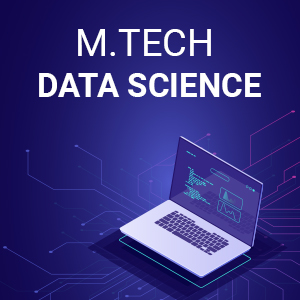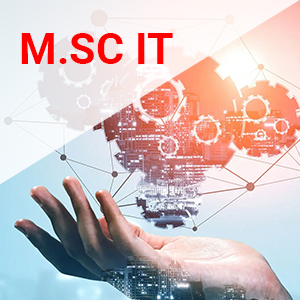Announcement
Get Ready for INDUS CUP 2K26! | Dates: 5–10 January 2026 | Stand a Chance to Win Cash Prizes up to ₹10,00,000!...Read more Get Ready for INDUS CUP 2K26! | Dates: 5–10 January 2026 | Stand a Chance to Win Cash Prizes up to ₹10,00,000!
We are excited to announce the Indus Hackathon 2025, an exhilarating one-day event organized by the CSE Department of Indus University....Read more We are excited to announce the Indus Hackathon 2025, an exhilarating one-day event organized by the CSE Department of Indus University.
26th ISTE Faculty Annual State Convention will be held at Indus University on April 27, 2023....Read more 26th ISTE Faculty Annual State Convention will be held at Indus University on April 27, 2023.
Get Ready for INDUS CUP 2K26! | Dates: 5–10 January 2026 | Stand a Chance to Win Cash Prizes up to ₹10,00,000!...Read more Get Ready for INDUS CUP 2K26! | Dates: 5–10 January 2026 | Stand a Chance to Win Cash Prizes up to ₹10,00,000!
We are excited to announce the Indus Hackathon 2025, an exhilarating one-day event organized by the CSE Department of Indus University....Read more We are excited to announce the Indus Hackathon 2025, an exhilarating one-day event organized by the CSE Department of Indus University.
26th ISTE Faculty Annual State Convention will be held at Indus University on April 27, 2023....Read more 26th ISTE Faculty Annual State Convention will be held at Indus University on April 27, 2023.

The Indus University has adopted a dynamic focus on offering professional education in a variety of disciplines like engineering, architecture, design, management, computer applications, aviation technology, and information technology to ensure that successful students of these programmes translate themselves as professionals rather than professional degree holders which is a requirement and necessity in today's fiercely competitive professional climate. Our only goal is to provide students with practical information to prepare them for the many issues the world faces once they leave college. A postgraduate degree increases your chances of landing an excellent graduate job and the likelihood that you'll be offered a higher income. You will then feel assured that the time and money spent on your postgraduate education were worthwhile
Five Postgraduate courses with the highest salary packages:
The MBA (Master in Business Administration) programme at IIMS, which is a two-year full-time programme, offers an industry- and business-oriented curriculum, giving young, brilliant minds a particular advantage in terms of being well-prepared for the industry. The concepts, current issues, and application areas of the specialisation are covered in the courses. With input from industry and global leaders, management programme frameworks are created to satisfy market demands. The Institute boasts strong scientific credentials and industry experience among its faculty.
Specialisation offered by Indus:

Eligibility: Graduation in any stream with a minimum 50 per cent passing score (With valid CAT/MAT/CMAT/Indus –MAT)
Future scope: MBA is currently the most in-demand course worldwide. In India, more than 3 Lakh students enrol annually in MBA programmes. It reveals countless job possibilities. MBAs are in high demand due to the growth of the global workplace and the influx of new corporations. An MBA degree broadens one's professional network, enhances one's business aptitude, and opens up new career prospects. In India, an MBA has a bright future because it offers a more excellent starting salary in their field than any other master's degree. The MBA programme provides a great career path and several chances in various industries.
Salary: Salaries for MBA according to the specialisation are mentioned below:
Marketing: 7-25 Lakh per annum
Human Resource: 5.25-8 Lakh per annum
Finance: 7.5-22 Lakh per annum
Information Technology (Business Analytics): 5-12 Lakh per annum
Operations Management: 5-8 Lakh per annum
Aviation Management: 10-12 Lakh per annum
Health-Care and Hospital Management: 5-12 Lakh per annum

A method for using tools to analyse and model data is called data analytics. This information is also utilised to draw conclusions. The insights aid decision-making in business.
Data analysts are essential to the success of enterprises as they become more tech-driven and dynamic. Data analysts are hired to collect, examine, and dissect data to support dynamic decision-making.
Data science is one of the most in-demand careers in computer science since it is essential to the success of practically any organisation. In order to prepare students for careers in computational sciences, specifically data-driven modelling and scientific computation, this M.Tech programme emphasises these skills. The Department features highly qualified and experienced faculty members specialising in cutting-edge subjects. It is the leading computer science and engineering institution in Ahmedabad, Gujarat. One of Gujarat's Top Computer Science and Engineering Institutes in Indus University.
Eligibility: The eligibility criteria are a minimum of 50% marks in B.E./B.Tech with the qualifying GATE Score or State level entrance exam for M.E./M.Tech.
Future scope: The future application of data science is driven by the potent mix of both. Organisations worldwide are developing novel ways to harness data and use this powerful weapon to propel their companies. The necessity to use this vast amount of data and the tremendous inflow of data have combined to create a significant job market in data science. Thanks to data science, a new range of occupations have emerged on the market. There is room for massive data-related activities like data scientists, data analytics, prominent data engineers, and big data managers, particularly in a developing nation like India.
Salary: Currently, data science positions rank among the highest-paying jobs available. For new hires, the typical remuneration for a data scientist is between 6 lakh and 7 lakh. This aids the growing interest in data science among many professionals.
A postgraduate programme called Master of Computer Application (MCA) instructs students on the many programming languages used in computer applications, web development, advanced networking, cloud computing, big data analytics, and artificial intelligence. The MCA programme is a two-year programme.
In order to fulfil the rising demand for qualified workers with experience in computer applications, the postgraduate programme was created. The MCA curriculum is more oriented toward application development. It places a strong emphasis on the most current programming languages and tools to develop applications that are both better and faster.
Eligibility: A candidate must have completed the prerequisite coursework for BCA, a bachelor's degree in computer science engineering, or an equivalent degree OR a B.Sc., B.Com., or a BA in mathematics, business mathematics, or statistics at the 10+2 or graduate levels (with additional bridge courses as required by the concerned university), all of which must have been completed from recognised institutions/universities by the admission rules.

Future scope: A master's degree in computer applications adds a speciality to a graduate's resume. After earning an MCA, one can pursue a variety of jobs. These include system management, web design, trainee programming, and software development. Many industrial projects are also given to students during the master's programme to explore their interests. Following an MCA, there are numerous opportunities and career paths in both the public and commercial sectors, which we will cover below. Depending on your aptitude, skill set, and interests, you can enter various fields as a postgraduate with a Masters in Computer Application.
Salary: In India, the average MCA salary is INR 7.9 LPA (Source: Payscale). Several variables determine the MCA compensation that an employee earns. A professional with a fresher job can draw a package of approximately 3-4 lakh per annum.

The Master of Science (M.Sc.) in Information Technology (IT) programme lasts two years. The goal of the M.Sc. IT programme is to impart both academic and practical expertise on topics including big data analytics, cloud computing, the internet of things, and software development.
The courses are meant to impart to the students the underlying ideas behind the practices currently used in the industry. Every stage of the programme emphasises practical laboratory knowledge. The students are required to complete an industry internship during their final semester. After completing the programme, students should have a solid academic background, the ability to evaluate, create, and design systems, and proficiency with current software design and development technologies.
Eligibility: Students with a minimum of 50% of the required marks from an accredited university who graduated in the fields of B.C.A., B.Sc. (IT), B.Sc. (Computer Science/Applications), and B.Sc. (Information Science/Systems) are eligible to apply for this course.
Future scope: The difficulties of the job market force students to choose a course of study that opens up a wide range of professional options. IT also aids in developing one's identity and capabilities. The most enticing aspect of this subject is that, as the IT sector is expanding by a quantum fold, there is no scarcity of career choices at both entry-level and expert levels. Students can apply for positions at practically all major multinational corporations (MNCs), including IBM, Microsoft, Cisco, and others, after earning their M.Sc. in IT.
Salary: The pay of an M.Sc. in Information Technology in India varies according to market trends and industry standards. The typical M.Sc. IT salary ranges from 4 LPAs to 8 LPAs per year for professionals and rises with years of experience and industry norms.
The Mechanical Engineering Department now offers a two-year postgraduate degree programme, the Master of Technology in Computer-Aided Design and Computer Aided Manufacturing. For practically every engineering subject, a convenient way to produce designs is offered by the Master of Technology course in Computer-Aided Design & Computer Aided Manufacturing.
Architecture, landscaping, interior design, civil engineering, surveying, mechanical engineering, electrical engineering, plant design, industrial design, duct design, electronic circuit design, plumbing design, textile design, and product design are among the design disciplines that can benefit from the M.Tech course in CAD/CAM. The Department of Mechanical Engineering, being the best in Ahmedabad, Gujarat, has highly skilled and experienced faculty members specialising in advanced subjects.
Eligibility: The criteria for admission to the M.E./M. Tech programmes are a minimum of 50% in B.E./B.Tech with a qualifying GATE Score or State level entrance exam.

Future scope: The PWD, CPWD, Defense, Power Plants, Agricultural Organizations, Space Research Institutes, etc., hire successful M. Tech CAD/CAM course postgraduates. The tech CAD/CAM scope is quite diverse and offers various fascinating employment options in multiple industries. Some prominent roles that graduates begin with are Engineering in design, Mechanical engineering of seniority, software developer, etc.
Salary: Payscale estimates that the salary for an M.Tech CAD/CAM position in India is between INR 3.5 and 5 LPA. Students can earn a very decent salary when pursuing this course because the M.Tech CAD/CAM scope is so broad and diverse in India. Due to geography, higher education, talents, and work experience, the M.Tech CAD/CAM pay in India may vary.